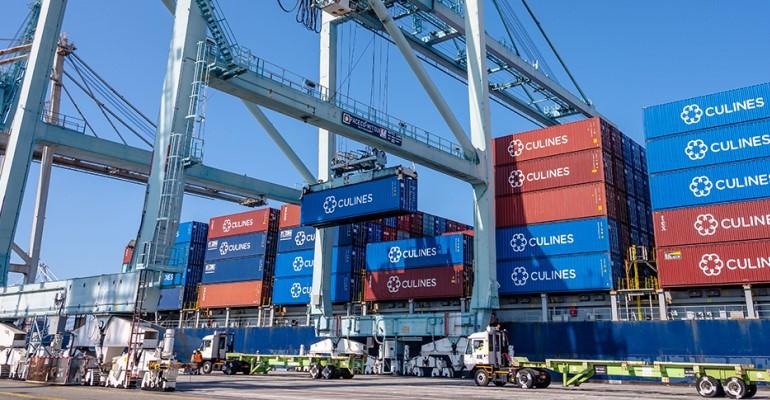Beginning in 2021, the FMC began looking at automated tariffs filed by carriers. In its initial Advanced Notice of Proposed Rulemaking (NPRM) on “Automated Tariffs” (Docket No. 21-03), it solicited comments on questions related to tariff regulations generally; three comments were received.
A year later- in May 2022, the agency is zeroing in on “pass through charges” by Non Vessel Owning Common Carriers (NVOCCs), one item addressed in the initial Advanced Notice. The FMC has now issued an actual NPRM seeking comments on proposals for very specific revisions to its rules, rather than the more general questions in the Advanced NPRM, published in the Federal Register on 10 May 2022. Comments are normally due within 30 days, but in this case an extension (out to early July) was granted.
The rules revision cover a host of items- including issues of free access to tariffs, as many, but not all, carriers provide, and recognising advances in technology, enabling NVOCCs, who do not control the vessels, to get their tariffs, and ability to pass on certain costs, in synch with those of the actual carriers.
In its NPRM, the FMC notes that: “The Commission believes that this proposed rule will allow for greater transparency in the sourcing of various fees and assessorials in the ocean shipping market, which will in turn foster a more competitive marketplace.” Closely related to this is a provision allowing NVOCCs to pass through charges imposed on the actual carrier with little or no notice (an example might be a charge that is imposed at a canal), provided that they are not marked up.
Within the half dozen comments received in response to NPRM , The National Customs Brokers & Forwarders Association of America, Inc, said “the proposed change would not provide any material benefit to shippers.” In between the lines, it alluded to the important role that NVOCCs play in navigating the relationship between a smallish cargo interest and a large carrier.
In discussing wording regarding an FMC intention to require detailing of cargo moved among NVOCCs, the trade association suggests that: “At the same time, the proposed requirement would undermine the business of NVOCCs, because, similar to the proposed option for NVOCCs to cross-reference tariffs, NVOCCs would be required to disclose their business relationships to their shipper-customers. These annotated invoices would identify friendly competitors and turn that business knowledge over to the shipper customer.” A comment from Yang Ming Transport Corp voiced similar concerns, with the carrier saying: “Full disclosure of all associated NVOCCs could also border on breaching ‘business partner confidentiality’…”
Another large organisation, New York New Jersey Foreign Freight Forwarders and Brokers Association, Inc. (NYNJFFF&BA), a group that includes NVOCCs, suggested that: “While its purpose is to promote transparency and the availability of price information is laudable, the practical effect is likely to be minimal”.
This organisation goes through the suggested changes in the NPRM in great detail, and concludes that: “the NYNJFF&BA does not see that many of these proposed changes will be of any practical use to the shipper for the preponderance of their ocean freight movements. Furthermore, they would place additional costs and burdens on the NVOCC thus contributing to inefficiency in the international freight process. While it is worthy that tariff access be free, shippers are not relying on tariffs for rate information but instead on privately quoted rate arrangements or contracts.”
In other words, in this group’s view, FMC efforts towards transparency in providing free access to tariffs, and adding cross references where the NVOCCs are involved would not help cargo interests decipher complexities of invoices, since various charges are detailed elsewhere. While some parts of the business are looking at streamlining and standardizing all manner of data flows, this group points out that: “Numerous and changing VOCC surcharges are difficult to locate in VOCC tariffs. NVOCC cross-referencing of VOCC pass-through charges is simply not practical.”
“People have woken up to the FMC.” is the view of maritime lawyer Lauren Beagan, who hosts an online podcast called “The Maritime Professor”. In a recent episode, Beagan, who is a former FMC staffer, contrasts the low number of comments on the matter of tariffs and pass throughs with those in another matter under consideration, that of Demurrage and Detention (“D and D”), considered in Docket 22-04, and still in the initial Advanced NPRM stage. Beagan notes that 80 comments came in regarding D and D, in contrast to the three in Docket 21-03.
Reader resources:
All material related to Docket 21-03, on Tariffs and Pass-through charges, can be found at:
https://www2.fmc.gov/readingroom/proceeding/21-03/
All material related to Docket 22-04, on Demurrage and Detention, can be found at:
https://www2.fmc.gov/readingroom/proceeding/22-04/
Copyright © 2024. All rights reserved. Seatrade, a trading name of Informa Markets (UK) Limited.
Add Seatrade Maritime News to your Google News feed.  |

